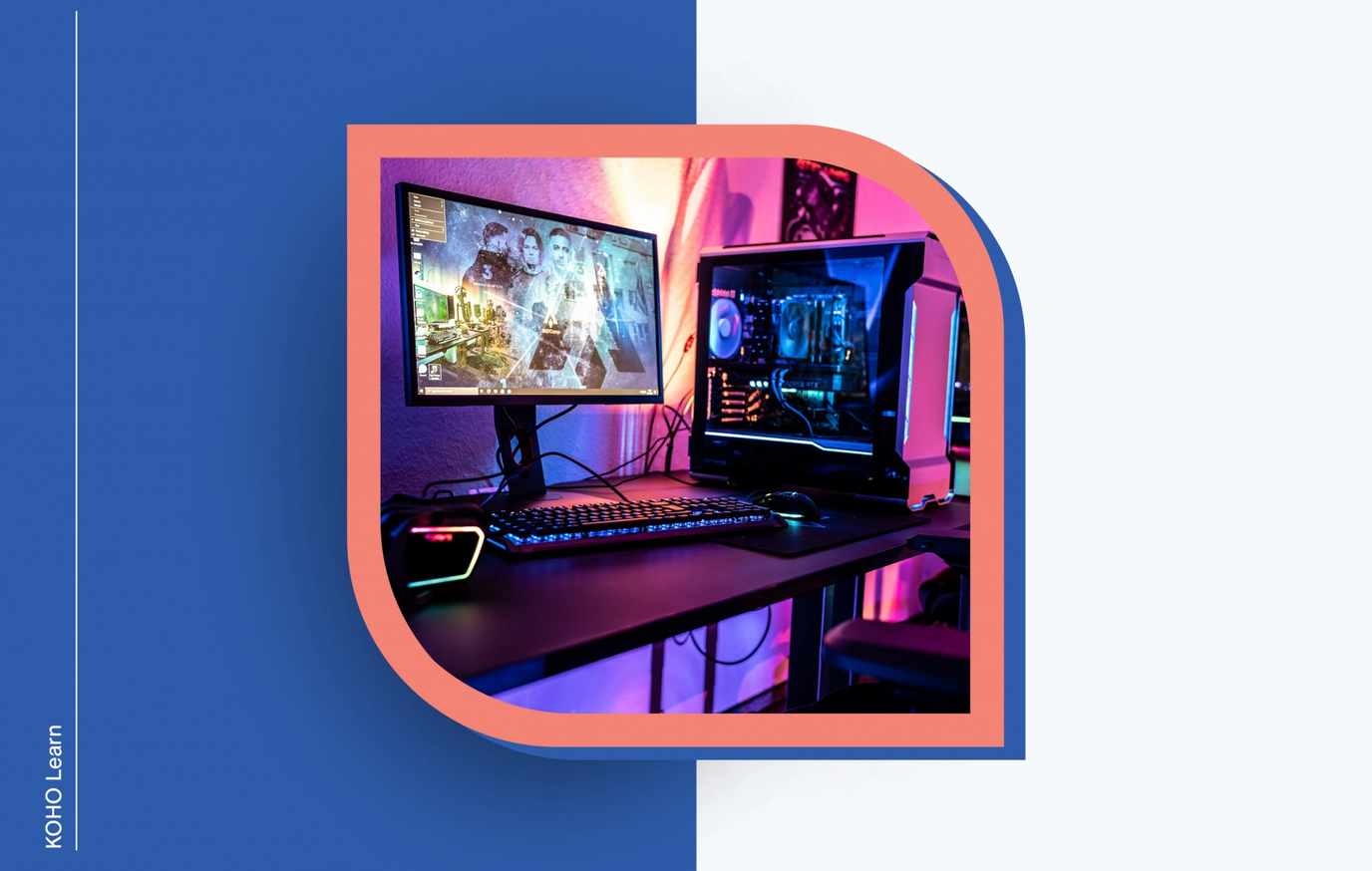
Rounding it up
Saving and avoiding debt is a good idea in general, but there are good reasons to finance a gaming PC.
Borrowing a reasonable amount could help build your credit score if you borrow responsibly.
The risks of financing a gaming PC are low, plus, gaming PCs are often used for work or other sources of income.
The value of a gaming PC drops quickly, so be sure that you assess needs first and get a warranty plus insurance.
Let’s be honest, the world has moved online. Over the past decade communications technologies now allow nearly anyone in the world to connect with each other to share ideas, learn information, and of course, have fun. Online gaming is engaging and the reason that it’s so enchanting is the ability to connect with other people in a shared community. Being part of games often means being part of a community that shares an appreciation for each other as well as the rich storylines that games often develop.
In fact, online gaming is becoming more than just a place to have fun. Many are learning that they can earn income by streaming games they play on sites like Twitch or Facebook Gaming by providing quality content to viewers through gameplay or commentary. However, the ability to play games and to stream onto streaming services at the same time requires a powerful PC – and those aren’t cheap.
So, if you lack the up-front funds to purchase a gaming PC, you might be considering financing one. Consoles are relatively affordable and can be a good way to build credit if you’ve never borrowed before. Let’s take a closer look to see if going this route might make sense for you.
Assessing Needs
When buying a gaming PC, it’s important to understand three points before the purchase: First, will the PC be just for gaming or also for work? Second, what kind of games are going to be played? Lastly, what is the budget for the purchase?
Too often people run into a new purchase such as a gaming PC as an impulse buy but end up regretting that purchase because not enough time was spent properly assessing the need or options. This eagerness to buy is anticipated by companies and often marketing will mean that you risk buying a PC that does not meet any of your needs. Plus, there’s a belief that owning a good gaming PC will elevate the owner to another, higher level of happiness. Behavioral psychologist Danny Kahneman calls this buying predicament “anticipated utility.” Common sense calls this “buyers’ remorse.”
Before you buy a gaming PC, really think and assess if you need to buy a new PC; and if you do, do research on what kind of games can be played and the different requirements for each game.
Gaming and Work
Unlike gaming consoles, a gaming PC allows many more options for activities outside of gaming. To function in the modern world, one of the requirements is to have a computer. Because gaming PCs often have superior processors and graphics cards they can also be used for graphic design, video editing, and audio recording. Professionals that need good computers to work often buy gaming PCs because they are such good computers for activities that require speed. If you have any of these skills, you can often justify and write off the expense of gaming PC for work reasons. If you are a freelancer or a professional gamer, investigate ways that a PC purchase can be used to write off against the revenue of your business.
What Kind of Games are Going to be Played?
This is where buying a PC can get confusing. There are so many options for a gaming PC that it can feel overwhelming. As a rule, for most people that are looking into serious gaming or becoming a professional gamer that makes money from live streaming games, it’s key to understand what kind of games are going to be played.
The main costs to a gaming PC are a computer’s memory (RAM), processor, and graphics card. The bigger and faster of each of these components of a computer is what contributes to costs. For a gaming PC, a really good graphics card is required for most games. That is followed by memory and then the processor. If you have an idea of what games you want to play, each game has a website that has the recommended requirements for the game in question.
Budgeting
The most important question is can you afford to finance a gaming PC? The nice thing is that gaming PCs rarely run over $3,000. If you shop around and do research on the prior two questions, you’ll land on a price that you can afford with financing. Just remember that financing for small amounts often comes with high interest rates. But even the principal and interest can be manageable if you budget for the expense.
In addition, financing a PC is a great way to build credit if you are young and don’t have other credit options such as car loans or mortgages. If you can find a way to make money from the gaming PC as well, it can be viewed as an investment as much as it is an expense.
SPEND SMARTER. SAVE FASTER
Understanding Financing
Many PC companies offer financing at affordable rates. Dell, for example, which offers its popular Alienware gaming PCs, offers 12 month financing at 0%. However, interest rates for financing these particular PCs ranges from 17.49% - 28.49% after the first year; so, if you aren’t confident you can pay the balance off within 12 months of your purchase, you may want to reconsider financing.
Using a credit card is another option for financing your PC. With rates typically at 19.99% for credit cards, though, you may end up paying quite a bit for interest.
Building a good credit score is important as banks might not approve an application for an unsecured credit card or loan if they aren’t satisfied with the credit history. But as a younger person, you might not have yet developed a credit score. A small amount of borrowed money is a good way to start.
Alternatively, you can save money and purchase your gaming PC with cash. KOHO has a new program for gamers that help them earn 5% cashback on gaming companies with prepaid cards that help avoid debt but still build credit – that’s a great way to save some extra money toward your purchase while also building credit.
Use KOHO’s Credit Building tool
Financing a gaming PC can help you build a better financial future by establishing good credit; however, it can be a lot to keep track of. And if you’re lacking a credit history, you may not be able to finance a PC in the first place. KOHO’s Credit Building tool helps to build your credit score by creating a history of consistent payments. All you need to do is keep a minimum of $7 in your Spendable account each month to cover the subscription fee, and KOHO does the rest.
Financing Gaming PC Pitfalls
One of the biggest pitfalls in financing gaming PCs is trying to build your own PC. If you are going to finance a PC, it is a good idea to finance a PC with a major computer company and make sure that there is a one to a two-year warranty on the PC. The internet is full of horror stories about people trying to build their own PC with borrowed money with nothing to show for it at the end of the project other than a pile of very expensive scrap. Since you are using borrowed money, make sure that there is a warranty and consider buying insurance for the PC. It seems like a needless expense, but insurance is there for those occasions when the dog eats the homework… or in this case, when the water glass fries the computer.
Not Making Payments
Taking on debt is a prediction that you can make the payments you agree to when you choose to finance the PC. To have good credit, you need to make sure that you have the time and ability to make the payments and don’t miss them. There is nothing worse than borrowing and not being able to pay back what you owe. This will impact your credit score and the ability to buy in the future. So only finance a PC (or anything for that matter) if you’re confident you can make your regular payments.
Finance with Confidence
Buying a gaming PC is often more than just buying a piece of gaming equipment. With that in mind, make sure that you can afford the payments, know what you will use the computer for, and shop around to find a good deal on a PC that comes with a warranty and issuance. If you take the steps above, you will be able to enjoy your new investment without worry.

About the author
Jordan is a former Broker and current community newspaper Publisher. When he is not researching and exploring the financial world he can be found raising grass-fed beef and goats in the Colorado Wilderness.
Read more about this author